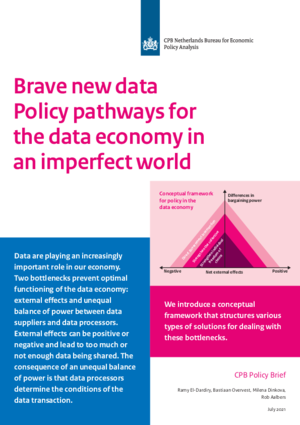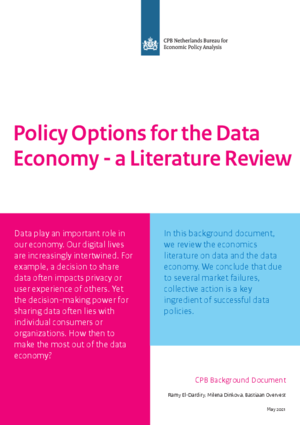Brave new data – Policy pathways for the data economy in an imperfect world

Data are playing an increasingly important role in our economy. Companies use data to improve and innovate their products and services. Medical data, for instance, are used to train algorithms in detecting tumours, and user data for social media platforms are analysed to develop targeted advertising. Data are also used by consumers to help them make better-informed purchasing decisions, for example through reviews or ratings.
Downloads
Scientists are trying to answer this question. In this Background Document we review the economics literature on this topic. We analyze the data value chain and study how data change economic costs. There are several market failures, such as externalities and unbalanced market power, that distort the working of the data economy. To address these market failures several policy options in the data economy are conceivable. Leveraging collective action in policy design, as an alternative to the traditional focus on informed individual decision making, increases the likelihood of realizing optimal social outcomes.
Downloads
Authors
Authors



